Not quite ‘how to train your dragon’ but the suburban alpaca still needs to be shorn. Alpacas get shorn once a year and we normally do ours the first week or so of October. This year though the weather has been very strange. After no frosts through late Winter, we started getting frosts in late September and October and very cold overnight temperatures. The days had been generally not too bad (although the odd 9 degree day) but it was to cold overnight to have them shorn. Every time it warmed up for a few days and we thought about booking them in, the next week it was cold again.
We also had a couple of false starts with rain. You can’t shear wet alpacas, and the shearing was booked and then cancelled due to rain a couple of times. All of a sudden it was December and the daytime temps were getting into the 30’s and Inti and Chimu were starting to get very warm, especially when out walking.
The first few years we had the alpacas we used to take them out to the farm they came from for the annual shearing day. Now that we don’t have access to a horse float any more, it was expensive to hire one so we have the shearer come to us. Ian has a mobile shearing table and is happy to come and shear small numbers of animals between his other jobs. He also shears my grandparents backyard sheep for them!
So here are Inti and Chimu fully fleeced and looking very much like fluffballs! This is what 14 months worth of fleece looks like 🙂
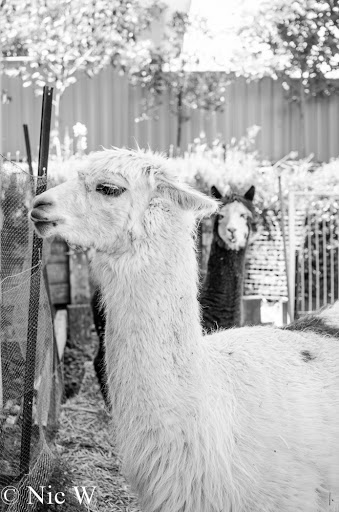
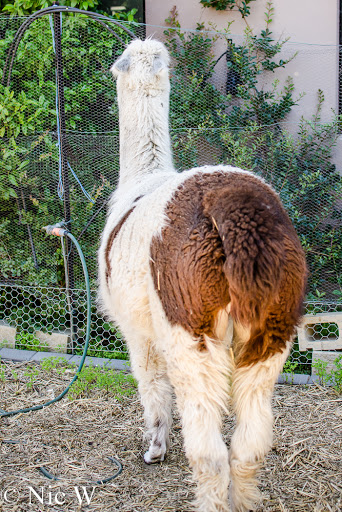
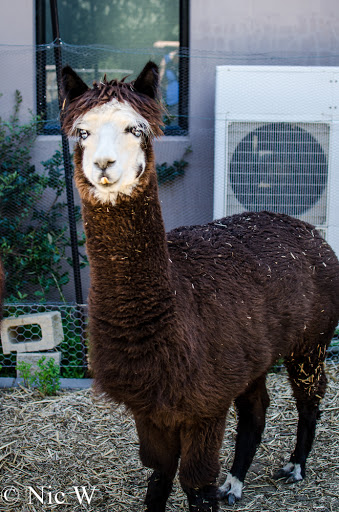
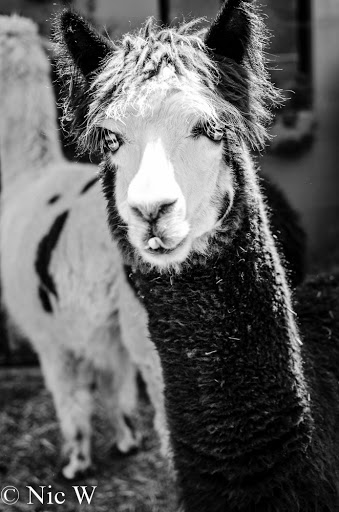
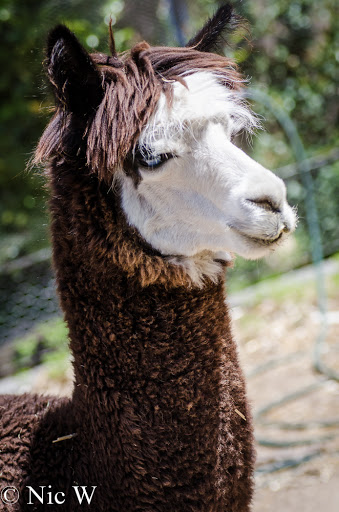
The shearers, Ian and his son, arrived after work one day last week to de-fleece the fluffy ones before they overheated. It was already over 30 degrees that day and they were starting to get a little warm. Normally they are fine up to the high 30’s but that is without a full fleece on them. We were pleased the promised rain had held off long enough to get the shearing done, as we didn’t want another cancellation.
In previous years Astrid was too young to watch the shearing but this year we told her she could watch if she liked. We warned her that it would be noisy from the machine and that Inti and Chimu make a lot of noise too and she was a bit skeptical about watching. With some encouragement she went as far the letterbox but then decided that it was a bit too scary and retreated inside to watch from the safety of our bedroom window.
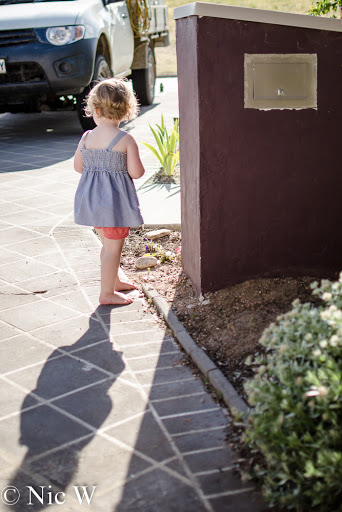
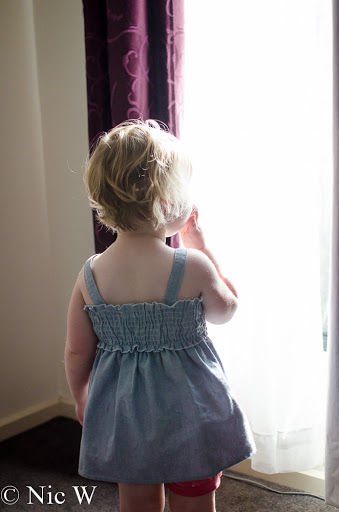
In previous years, Ian had set up the shearing table in our garage, but this year we decided to go alfresco and he set it up next to our driveway right out near the road. We live on a reasonably main street, with a fair amount of traffic. The alpacas get a lot of attention when they are getting walked around the suburb but imagine the looks we got when we started strapping them to a table and shearing them in the middle of suburbia. Quite a lot of cars slowed down to have a gawk and the neighbourhood walkers thought it was quite a sight. Even the neighbours came out to watch the show. It certainly drew some attention!
So, how do you shear alpacas? Generally they use a special table that they lie them flat on with their feet tethered. Unlike sheep they are hard to shear standing up. Some of the bigger llamas get shorn standing but they are usually contained in a small race as they can’t be manoeuvered like a sheep can as they weigh over 100kg. The table works well for the alpacas and having them tethered means they can be manoeuvred easily to get access to the whole fleece. It doesn’t hurt them at all, but they really don’t seem to enjoy the experience, which I can certainly understand. Our 2 play up more than farm alpacas as they are a bit spoilt. A large fluffy animal strapped to a table while it wails and carries on must look a bit comical to anyone who hasn’t seen it done before.
So Inti was first cab off the rank. Being half Llama he is very large and would weigh around the 100kg mark. Once up on the table he immediately started carrying on a treat and spitting. All alpacas and llamas spit but ours reserve such behaviour for when they are cranky at each other or when they are very annoyed at us. They have only ever spat on people they know well, random passers by and people giving them pats will not get spat on. We generally only cop a spitting when they accidentally get us when trying to spit in the other direction and it blows back on us. Shearing time is the exception. They get very cranky and you’ll be covered in pre-digested grass and chaff if you are within 10 metres of them. It’s pretty revolting normally! You’ll notice we put towels over their heads. This calms them down and also stops you getting quite so covered in spit.
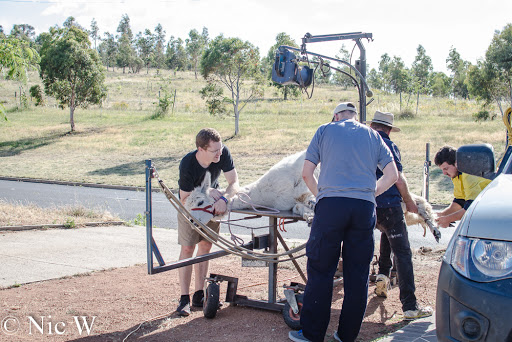
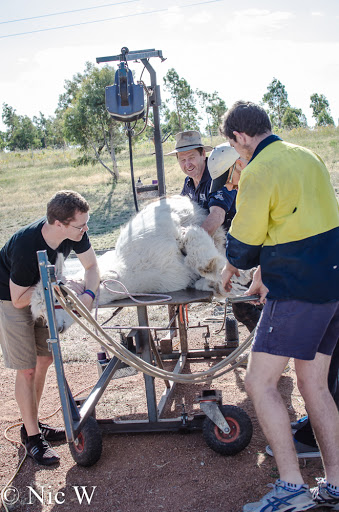
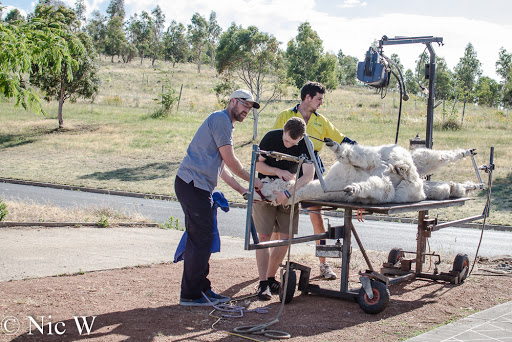
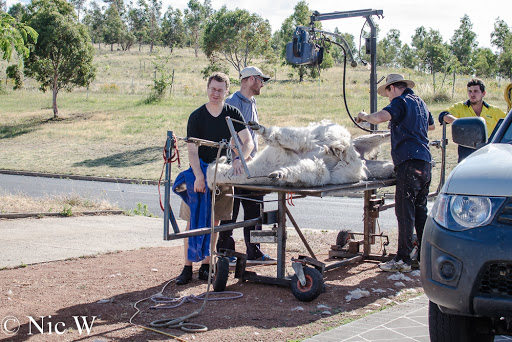
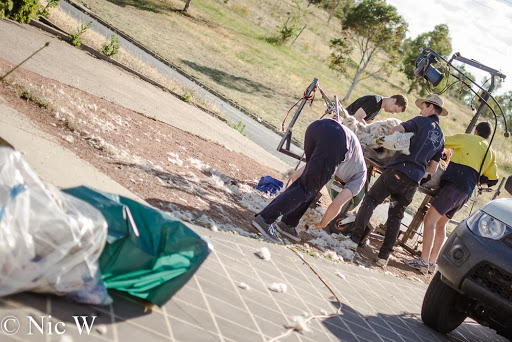
We collect their fleece but you can see how much was flying around on the ground as it was getting loaded into the bags. I’m sure some of the neighbours would be wondering where all the fleece in their yards came from. Luckily birds like to pick it up and use it for nests so it doesn’t last long. We did end up with 4 huge garbage bags of fleece from this years shearing. Now we have to get it all spun (along with the stockpile in our house from previous years).
Then it was Chimu’s turn. Chimu hates being shorn and normally squeals the whole time. A couple of years he has been hoarse after shearing day from all the carry-on. He has been better the last few years and was actually better behaved than Inti this year. There was still some wailing but it was fairly short lived and he didn’t spit quite as much.
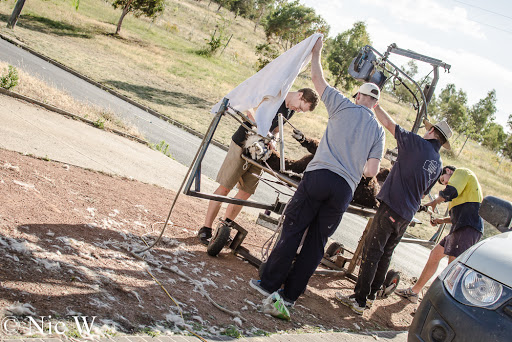
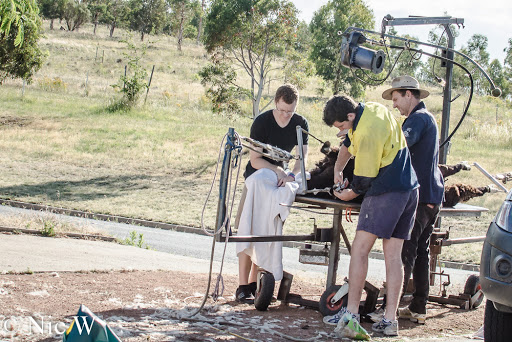
They also get their toenails clipped while they are tied down (you can see Ian’s son doing this). We clip their nails during the year too but it’s so much easier when they are already constrained. They have constantly growing teeth and most years they get their teeth ground down on shearing day. A regular angle grinder is used, which is fitted with a special attachment. It looks quite bizarre but doesn’t hurt them at all. This year their teeth didn’t get done, so no photos of that!
Here they are after they have been freshly shorn, looking a little ridiculous and quite cranky! You can see the green mouth Inti has from all the spit….. Spitting is a rather stupid defence mechanism from camelids because the taste is so vile that they end up being miserable with green spitty mouths and have to eat dry food or leaves for a few hours to wash out the taste. That is why they don’t spit at you unless they are really upset since it’s not pleasant for them either!
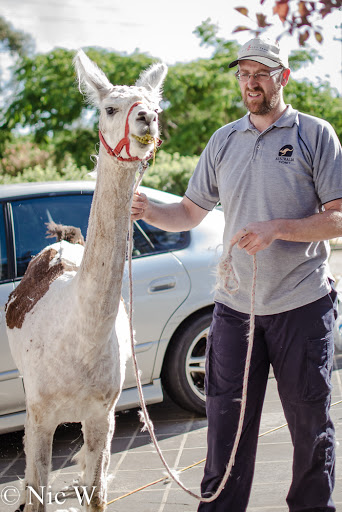
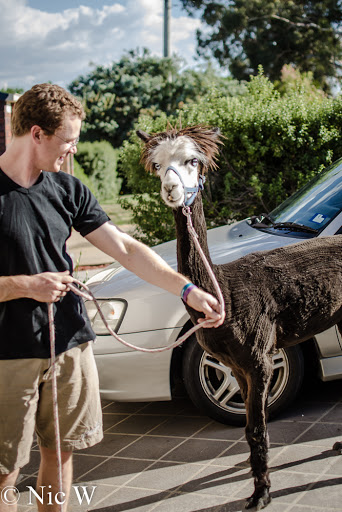
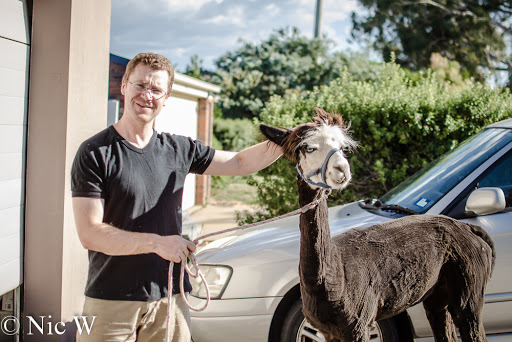
Here are the skinny minnies, looking very different after their fleece removal (and much happier after they had calmed down and had some nice food). It was lovely and warm for a couple of days post-shearing but then the overnight temperatures dropped again and it rained so we had to put their coats on. Regular farm alpacas don’t get special treatment like coats to protect them from the cold and rain but our two are SOFT!!! So, we tend to put coats on them for a couple of weeks post-shearing and when it is very wet or cold. This year aside from a couple of days of close to zero overnight and a couple of damp days they haven’t been coated at all since it was so late when we got them shorn. Normally it’s a nightly ritual for a couple of weeks post-shearing.
These coats are there post-shearing coats and only fit for a few months of the year. They have big puffy grey coats made of sleeping bag material we use over Winter when they have more fleece and it’s miserable and wet. They don’t mind the cold at all but hate windy and wet weather……. as I said they are soft (and spoilt!).
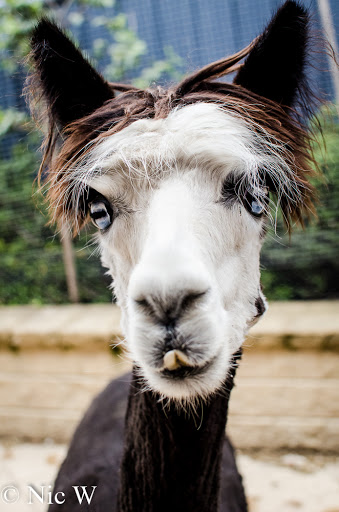
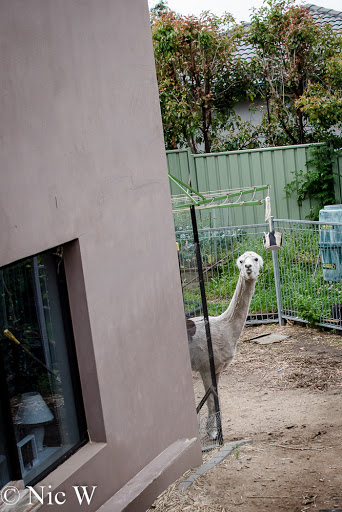
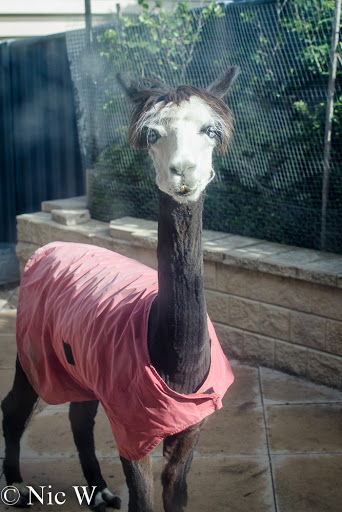
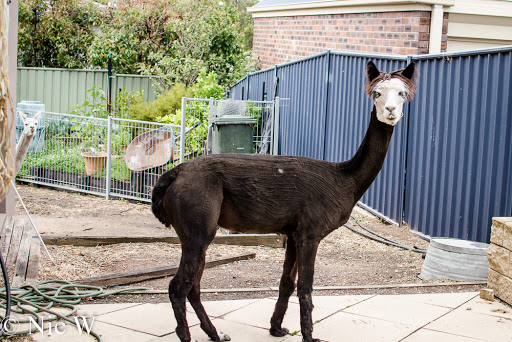
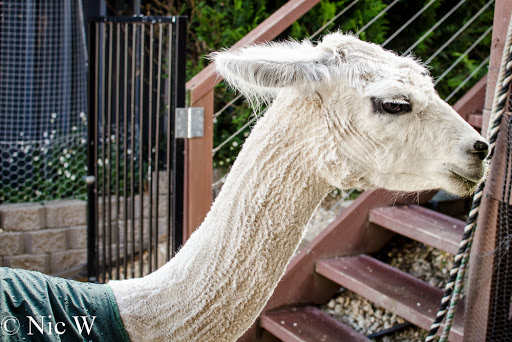
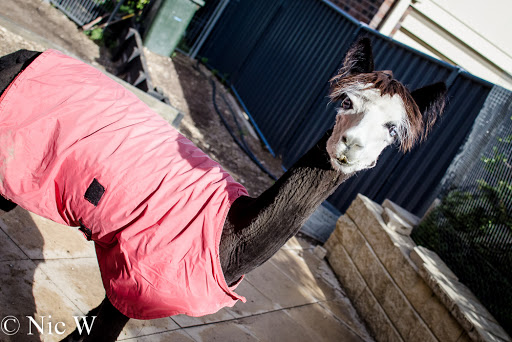
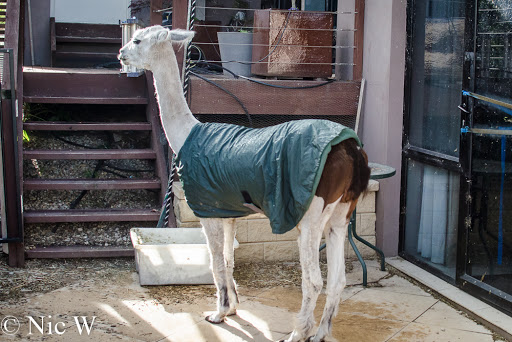
Inti and Chimu are always a bit wary of us for a couple of days post-shearing, but they were over it pretty quickly this year and were back to being our friends a couple of hours later. I think they were well and truly ready to rid themselves of all that fleece.
While they look ridiculous newly shorn, they feel so soft and nice, all velvety and a bit like an expensive short-pile carpet. After few weeks they resemble long pile carpet and by then they are caked in dirt and not so nice to rub!
Now the shearing is over for another year and the alpacas are ready for the long hot summer……….